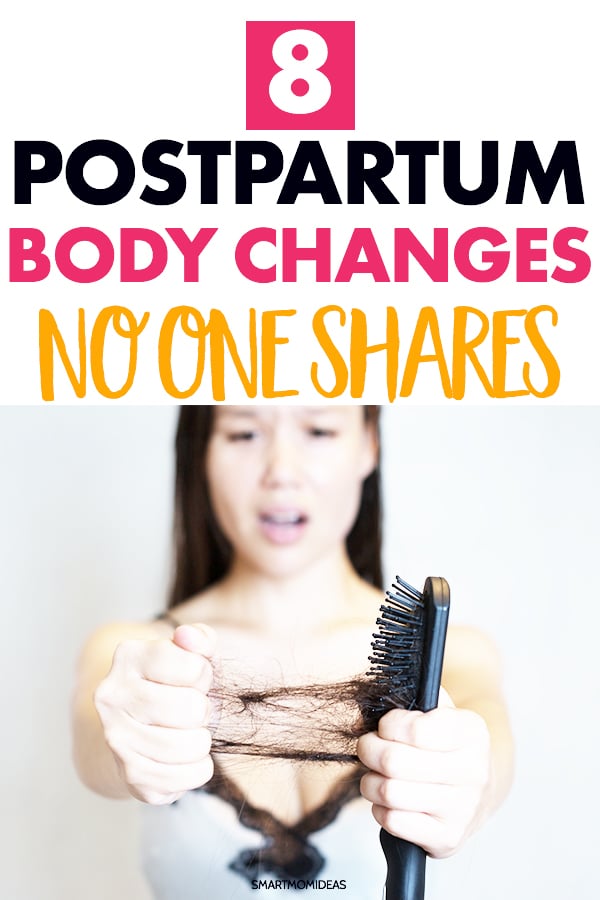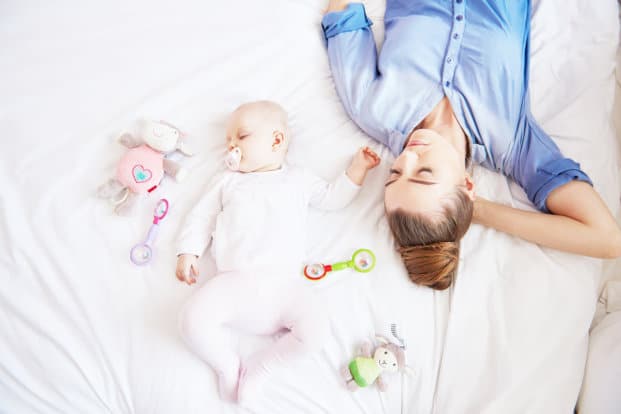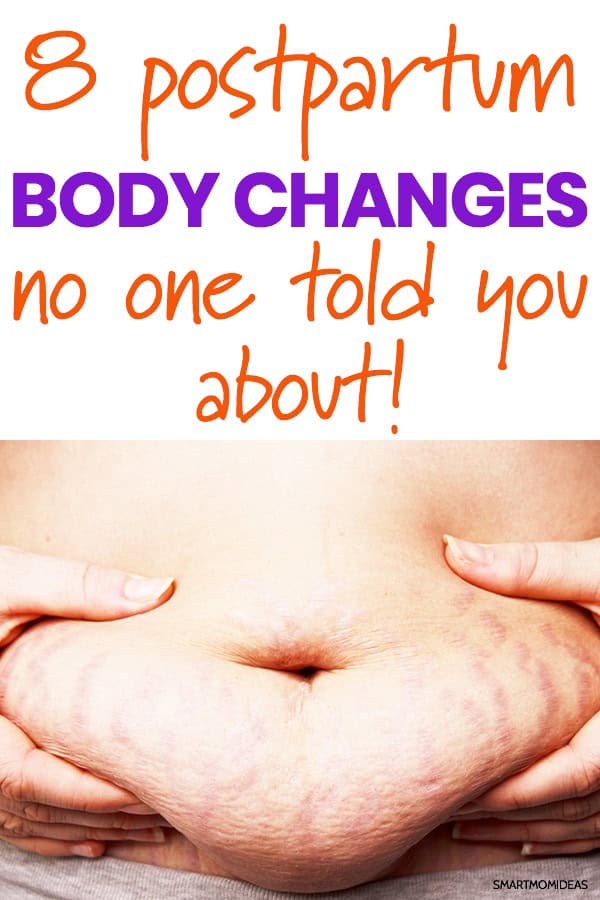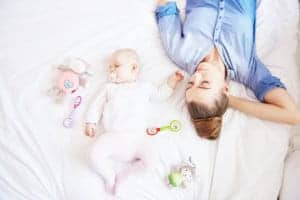Postpartum body changes that NO ONE shares with you! Get them here!

Having a baby can drastically change your body.
While some women easily bounce back after having their baby, others experience some less than desirable side effects.
After I had my twins I couldn’t afford resting for long.
I was constantly moving around but made sure not to lift my twins or bend down as I had a c-section.
To help you with your postpartum changes as a new mom, you need to know the true things that come after having a baby.
Here are eight common postpartum body changes no one told you about:
1. Hemorrhoids
This is an unfortunate and annoying side effect of pushing your baby out.
If you had a c-section, you will likely have avoided this postpartum change (although you can still get hemorrhoids during pregnancy).
Hemorrhoids happen when the veins in your rectum swell as a result of the pressure from pushing either a baby or a stool.
They can range from mild to very painful. Hemorrhoids can result in rectal itching, bleeding, and additional swelling around the anus. Unfortunately, they don’t really go away but you can take measures to lessen the uncomfortableness of them.
You can ease the pain and swelling by using a sitz bath with some soothing bath salts or using a donut pillow if you have problems with sitting being very painful. You can also use creams to prevent itching and swelling of the area.
If you are constipated and are having issues going, this is not going to help your hemorrhoids and will likely make them worse. If this is a problem for you, you can take a stool softener to prevent having to push too hard when you have to go.
If you are experiencing symptoms that are affecting your daily life, contact your health care provider to see what they can do to help you.
2. Hair Loss
It’s great when you are pregnant and your hair and nails are luscious and growing faster then you can keep up with. Unfortunately, this can quickly change after you have your baby.
Not only do many women tend to lose their hair with their new postpartum body, generally speaking, their hair is also often much thinner than before they were pregnant.
Hair loss can be attributed to sudden changes in the hormones estrogen and progesterone.
For many women, this does not last forever though and their normal hair growth and regrowth cycles resume about six to 12 months postpartum.
You can help to slow hair loss and retain your locks by using a thickening shampoo or taking a biotin supplement. You should also be continuing to take your prenatal vitamins, which will help with hair loss as well.
Maintaining a healthy diet is just as important to preventing hair loss as it is with any other postpartum body changes.
Just be sure that you consult with your doctor if you are planning on taking a supplement and are breastfeeding.
3. Loose Skin
During your pregnancy, many things change, including the elasticity of your skin.
Considering you have probably gained some weight while you were pregnant, once you lose the weight your skin might become saggy or loose.
There are several things that can affect your skin’s elasticity and collagen production that can lead to looser skin after pregnancy, such as:
- The length of time you have been overweight
- How much weight you have lost
- Your age
- Genetics
- Your exposure to the sun
- Whether or not you smoke
Generally speaking, if you were overweight before you became pregnant and you lost a lot of weight after having your baby, you will likely have more loose skin than if you were of a normal body weight before.
You can work toward regaining your skin’s collagen and elastin production by changing your diet, drinking lots of water, and adding some supplements. Adding collagen powder to your coffee or tea is a great start.
As a method of prevention, you should also ensure that you are keeping your skin well moisturized before, during, and after your pregnancy. This will also help to prevent excessive skin stretching, which can later lead to sagging.
4. Back Pain

Your body goes through a lot of hormonal changes when you become pregnant, however, these hormones simply don’t shut off once you have the baby. It takes a while after baby is born for your hormones to regulate again.
The hormones relaxin and progestin help to relax your muscles and ligaments in preparation for birth, which can often cause women a lot of pain in their backs and other joints. Unfortunately, this does not immediately go away once baby is born.
Furthermore, if you are breastfeeding, you might also experience a lot of back pain due to poor posture.
Sitting hunched over breastfeeding for hours per day does not benefit your back.
If you can, try to lay on your side and breastfeed or sit reclined in a chair rather than hunched over your baby.
You can also try some gentle yoga poses and stretching to help relieve your back pain. Taking an over the counter pain reliever might also help with back pain, just be sure to check with your doctor if you are breastfeeding.
You might also find some relief by using a postpartum girdle, this can help to remind you to maintain proper posture and help to restore your muscles to where they should be.
5. Skin Issues
Due to those wonderful hormonal changes, you might also experience dry and itchy skin as well as acne postpartum. These skin changes are also a result of hormonal changes and can persist for up to a year after the birth of your child.
Many skin issues can be corrected or managed with a healthy diet, adequate internal and external hydration, and natural skincare ingredients.
If you are experiencing very dry and itchy skin make sure that you are taking care of yourself and eating a healthy diet that includes lots of fruits and vegetables while getting plenty of water.
You should be drinking your body weight in ounces of water each day (or shoot for a gallon at least). If you have problems remembering to refill your water bottle, these 128-ounce water bottles are great!
You can also consider changing your soap to something more natural, like African black soap and slathering yourself in coconut oil every day.
6. Weakened Bladder
Get used to crossing your legs every time you sneeze, cough, or laugh…
Trust me, this happens to a lot of women, you are not alone and it is nothing to be embarrassed about. You might experience involuntary incontinence as giving birth weakens your pelvic floor muscles.
Women also experience a weakened bladder if they had an episiotomy or the nerves that control the bladder were damaged during childbirth. If you find yourself crossing your legs in a desperate attempt not to pee yourself, there are things you can do in order to avoid having to wear an adult diaper.
First, always wear a panty liner. There are many light and flexible options available, you will forget you are even wearing one.
However, if you do dribble a little bit when sneezing or coughing you won’t have to worry about changing your pants.
Secondly, you can do Kegel exercises to help build those muscles back up.
Kegel exercises are easy to do and you can do them anytime and anywhere. Simply squeeze your pelvic floor muscles (like you are trying to stop peeing) and hold it for a few seconds and then release.
You can also get a kegle exercise toner if you feel you need an extra boost in your keagle workout.
7. Brittle Nails
Thank your hormones yet again for this one.
Some women might experience brittle, weak, or paper-thin nails postpartum as part of their postpartum body. There are a few things that you can do to help prevent and maintain nails that won’t break every time you go to pick something up.
I can’t stress enough about taking a prenatal vitamin before you get pregnant, during, and after.
Your hormones continually changing which can reak havoc on your body. You can keep your nails strong by taking your prenatal vitamins and getting regular manicures. I mean, what better excuse to get away and destress than going to the salon for your regularly scheduled manicure?
If you prefer to save a couple of dollars and DIY, then get a good nail buffer and nail strengthener.
8. Emotional Changes
The drastic changes in your hormone levels don’t just affect you physically, they also can affect you emotionally.
Many women experience emotional changes as a result of their postpartum body, not to mention a lack of sleep, poor nutritional habits, lack of support, and general feelings of overwhelm can all play a role in your postpartum emotional roller coaster.
Women’s personalities and emotional maturity levels can also change as a result of giving birth. This isn’t a bad thing, it just makes them a little different.
Emotional changes are, again, due to hormonal changes. Some women might experience higher rates of depression, anxiety or stress. This is all completely normal.
If you are experiencing emotional changes that you find difficult to deal with, speak with your partner or your doctor. You can try some stress reduction methods, such as meditation and yoga.
However, if you do not have a strong support system, it might be difficult to really be able to take time for yourself. Your physical and emotional health are tied together, so when you are taking care of yourself physically, you should also be doing your best to care for yourself emotionally as well.
This can be achieved through a healthy diet, getting enough sleep, proper hydration, and adequate exercise, as well as time personal TLC.
Being a new mom is hard, whether it’s your first kid or your fifth.
You need to care for yourself to be able to care for your little one. Don’t forget, many of these postpartum changes are temporary.
So embrace your beautiful new postpartum body and the miracle you created.
Over to you –
What postpartum body changes did you face? Share in the comments!
Please remember to pin me!






Leave a Reply